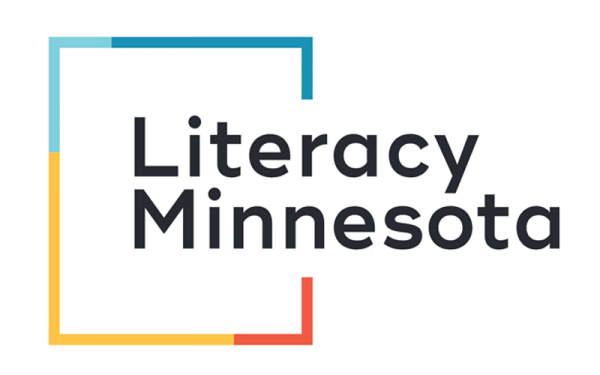
About the Author
Owen Morrish (he/him)
Owen Morrish is an undergraduate fellow in the Global Arts and Humanities' 2020-21 Society of Fellows cohort. Morrish is a senior Eminence Fellow majoring in Migration Studies and Romance Language Studies. His research is focused on pedagogical practices used to support the linguistic integration of adult refugees in their new communities. Morrish was awarded the Fulbright-University of Birmingham Postgraduate Award, with which he will be pursuing an MA in Migration Studies in the United Kingdom and approaching his research with a more globally-minded perspective after graduation.
ESL Pedagogy
It appears that the vast majority of best practices in ESL used in practice today with adult refugees have been informed by research focused on general adult language learners. Current resources have not necessarily been crafted with considerations for students navigating the demands of an immigration context, let alone those facing the further challenges posed by forced migration. Therefore, to support today’s ESL instructors and to ensure that the students are receiving the highest-quality language education that can be provided, more formal and concentrated research efforts in determining and materializing best practices for supporting adult refugees’ language education could be of great value.
Drawing from the results of this study, the following sample of items are worth considering when designing future research studies and empirically-informed pedagogical materials for adult refugees specifically:
- How to support adult language learners from preliterate or nonliterate backgrounds (77% of instructors surveyed had such students in their classes, but experience difficulty in understanding how to best support them, even after earning a master’s degree in TESOL).
- How to design instructional programs that address structural barriers to accessing the classroom (e.g. conflicting employment schedules, a lack of transportation or childcare) that have remained fairly constant for several decades.
- How to organize a class with a steady stream of newly-arrived students.
- How to effectively manage a classroom with students from a wide range of linguistic and educational backgrounds, especially when working with limited resources.
- How to leverage emerging technologies to support learner autonomy and extracurricular learning among adult refugee students.
Innovative ESL Lessons
Unable to fully rely on established resources, ESL instructors across the United States demonstrate admirable ingenuity and creativity in leveraging personal experiences to build upon the resources they are given to meet the needs of their students. In doing so, despite being burdened with the responsibility of constantly theorizing, experimenting with and producing new approaches — a seemingly unofficial “second job”, far beyond the expectations of a typical teaching position —instructors have made and continue to make extraordinarily-impactful learning communities for these adult learners. See below for a sample of innovative activities that instructors chose to highlight.
"We would do what we call a conversation wheel. This was two circles of students — one inner circle and one outer circle. The outer circle would walk randomly, and we would stop them, and then they would talk to that person in front of them for about a minute. And then after a minute, we would have them do it again, and we would do it three times. So they would get a chance to meet people from the other class. They would get to talk to their classmates.”
One instructor incorporates “emotional and cultural-based icebreakers,” where students engage in small discussions to share ideas about their best days or worst days in the United States so far, or to share their experiences out in the community “when [they] didn’t understand what people were saying.”
Another instructor described using flashcards with phrases such as “phone number” and “date of birth” written on them, which students were to first take turns reading aloud and, in a subsequent round, to actually provide the information listed. Using that same target vocabulary, activities would become more and more output-based, in an effort “to build that sequence of skills” in the words of Participant 18. Later on, for example, students could be given an actual form from a local health department and asked to locate and fill out the items that they learned in class.
The instructor passes out printed images of different places around their city to students in pairs and tells them to “describe this picture” and “tell anything you can about this picture.” This activity would be very effective at allowing students to practice the output of new vocabulary and to develop a greater familiarity with their local community. It is also possible that students could share something more personal and communicative (e.g. “I went there last week!”) about the place in question, depending on if they have acquired the necessary language skills to communicate their ideas.
In one activity, the instructor passes out housing advertisements to students sitting in pairs, instructing them to each read the advertisements and arrive at a consensus about their favorite. The instructor might ask, “If you had to choose one of these apartments or houses to live in, which one would you choose and why?” Further, students might be asked to write their own advertisements for different houses, after which the class would take a vote to answer the question, “Which one would you choose to rent?”
Host Language Proficiency
As Ager and Strang (2008) emphasize, gaining proficiency in the host language plays a valuable role in helping immigrants effectively integrate into their new communities. It can foster relationships with members of the host society and improve access to employment and education, among other factors.
Unfortunately, in many ways, American society continues to be characterized by certain interpersonal and institutional hostilities toward newcomers who have not yet reached a certain level of English proficiency. For example, if adult refugees are unable to pass the naturalization exam exclusively in English, they can lose their eligibility for certain government benefits.* Yet, we must consider that American academia has yet to even articulate how to best support adult refugees’ language learning journeys, and that the nonprofit organizations responsible for supporting these journeys are often underfunded and understaffed. When we do so, the difficult predicament in which many refugees find themselves, especially those without prior experiences with English, educational systems, or literacy, becomes clear.
If the goal of refugee resettlement is truly to support experiences of meaningful and holistic integration as a “durable solution," it is imperative that we reconsider the standard to which we are holding out newcomers and what we might be able to do to truly achieve this goal.
*Remember: Refugees Contribute More In Taxes Than They Ever Receive in Benefits
Bibliography
- Ager, A. & Strang, A. (2008). Understanding integration: A conceptual framework. Journal of Refugee Studies, 21(2), 166-191.
- Office of Refugee Resettlement. (2017). Annual Report to Congress. U.S. Department of Health and Human Services.
- Refugee Processing Center. (2021). Refugee Admissions Report as of January 31, 2021 [XLS]. U.S. Department of State, Bureau of Population, Refugees, and Migration.




